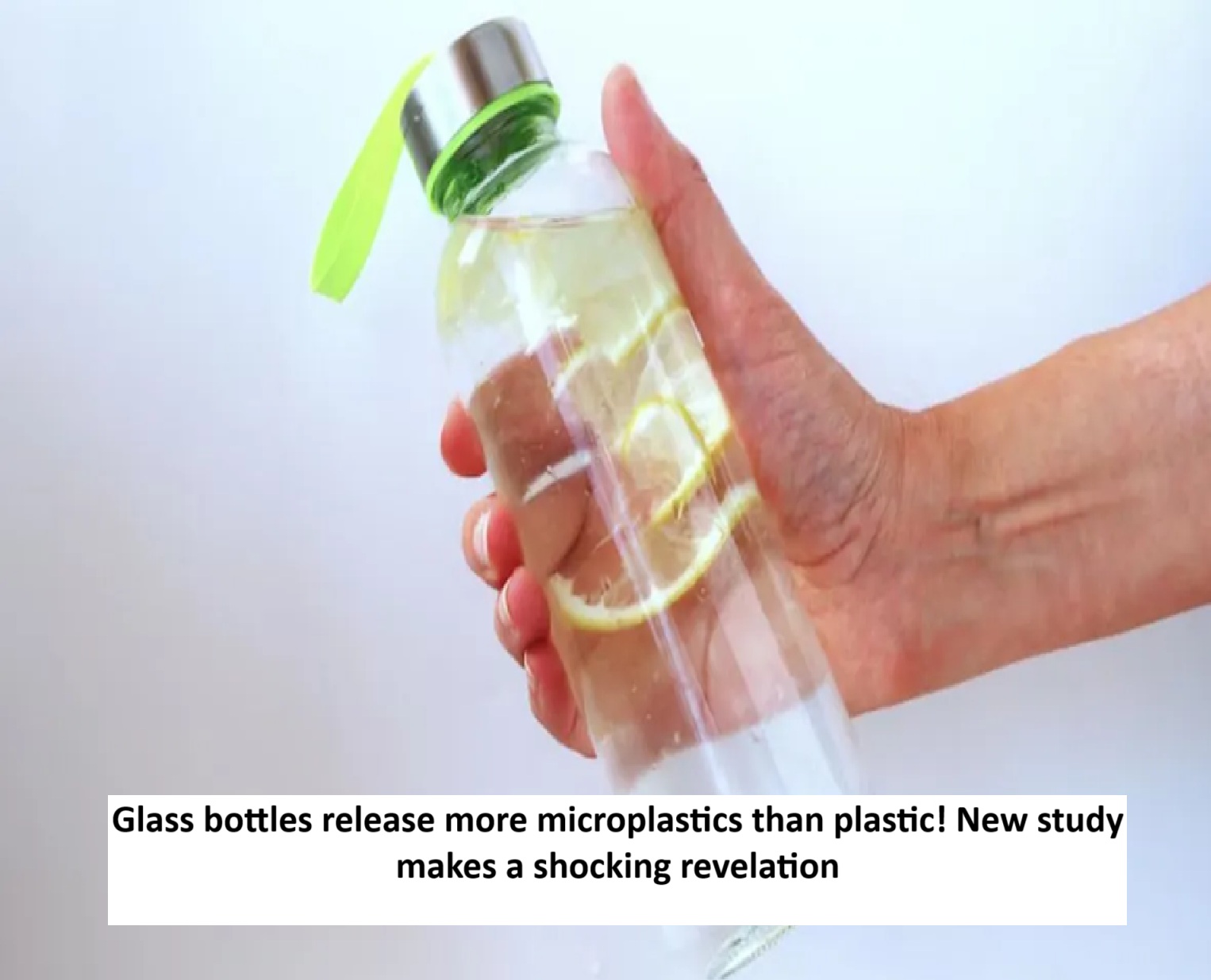
News Topical, Digital Desk : Till now we all thought that glass bottles are the best option, right? We considered them eco-friendly, better for health and also gave them a place in our kitchen, but recently, a new research conducted by France's food safety agency ANSES has shaken the foundation of our trust.
Yes, this study brings forth such a shocking truth that after reading it you might be forced to throw away your glass bottle. The study shows that your favorite glass bottles may be more contaminated with microplastic particles than plastic ones. Let's know in detail.
Shocking results came out in the study
Even scientists could not believe it when they saw their initial results. They expected glass bottles to be cleaner than plastic, but the exact opposite happened! This study found that an average of 100 microplastic particles were found per liter in glass bottles of things like cold drinks, lemonade, ice tea and beer. This number was 50 times more than the particles found in plastic or metal containers.
Is the lid itself the culprit?
Researchers thought that the main reason for this pollution could be the bottle caps. They observed that most of the plastic particles found in the bottles had a similar color and texture to the outer paint of the cap. This means that these small plastic particles were getting into the drinks from the outer paint of the metal caps that close the glass bottles.
Which drink is the most contaminated?
The study found that beer bottles contained the most microplastics, with an average of 60 particles per liter. Lemonade was followed by lemonade, with about 40% of the microplastics found. What was surprising was that plain and soda water had very low levels of microplastics in all types of packaging. Glass bottles had about 4.5 particles per liter, while plastic bottles had only 1.6 particles.
Another interesting finding was that wine bottles were less contaminated than other glass bottles because they have cork stoppers instead of metal lids.
What is the solution to the problem?
Guillaume Duflos, research director at ANSES, says it's not yet clear why this happens, but he has also suggested a possible solution. Research has shown that thoroughly washing the lids and cleaning them with an ethanol-water solution can significantly reduce the number of microplastic particles in them.
The growing threat of microplastics
This research reminds us of the growing threat of microplastics . Plastic production was 1.5 million tons in the 1950s, which has increased to 400.3 million tons in 2022. This increasing use of plastic and poor waste management has become a major challenge for our environment and health.
Microplastics, which are pieces of plastic smaller than 5 millimeters, are now being found everywhere from the world's deepest oceans to Mount Everest. They have even been found in human brains, placentas and the stomachs of sea creatures.
This new study forces us to think about what we know about our everyday things and what other steps we should take to stay healthy. Maybe now we will have to think a little before using glass bottles too.
--Advertisement--

 Share
Share



